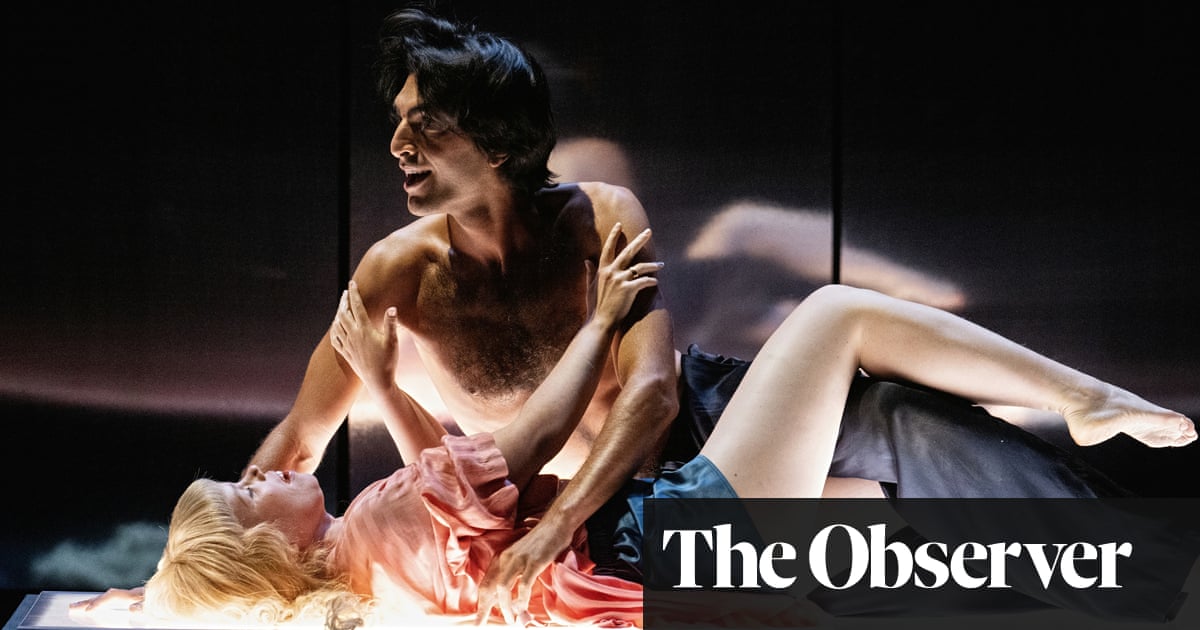
ast year it was announced that the traditional first bank holiday of May 2020 – the starting gun of Day Off season – would be moved from the Monday to the Friday, so that it might play a bigger part in the Brexit-related culture war. It would coincide with VE Day. Maybe Spitfires would roar. There would certainly be bunting.
With a lack of foresight that has come to define them, the government didn’t tell stationery manufacturers in time – the consequent misprinted calendars and diaries could become collectors’ items, mementos of the kakistocracy, although with an estimated 30m of them, it is unlikely they’d ever be worth very much.
Overtaken by recent events, VE-cheerleaders have tried to spruce the commemorations with topical, socially distanced detail: a schedule of activities has spread across social media: 11am, two-minute silence on your doorstep; 3pm, watch Churchill on the BBC; 4pm tea and scones; 9pm, nationwide singalong to We’ll Meet Again.
Others object to the shonky history of celebrating VE Day at all, the papering over of war’s brutal realities. What I find nauseating is this whole package of Britishness, the Vera Lynn/double-decker bus/phonebox imagery that is both exceptionalist (we make the best patriotic singalongs, the most internationally recognisable obsolete technology) and regressive. It invites us, always, to hark back to some indistinct point in the past when we were made of better stuff.
Captain Tom Moore is the human shield of this way of thinking, since how could anyone object to him personally? He’s such a stand-up guy. Yet this nostalgia was politically sly at the best of times – it attempts to leverage past glories to build a hierarchy of belonging in the present, a hierarchy that was always somewhat, if not entirely, based on race.
Now, in the middle of this crisis, that vision of the past is acutely unhelpful. If we are coming together as a nation – which I think we are – we’re coming together as the country we are right now. It is the country of Moore, and it is also the country of Areema Nasreen, of Habib Zaidi, of Laura Tanner, of the scores of NHS staff who have died saving others, of the millions risking infection to man the frontline of the battle happening today.
We don’t have to live on the borrowed symbolism of some imagined time when things were “simpler” (read, more monocultural). We have our own contemporary acts of heroism to celebrate. To stand for two minutes at 11am, mourning the fallen of yesteryear, without first a token of silent respect to the DHL guy, the binmen and the bus drivers, would be not so much insulting as ridiculous.
Patriotism, when it has any nobility at all, isn’t just nationalism in its Sunday best. It is a celebration of people willing to make sacrifices for their fellow citizens. Today, those acts of sacrifice are everywhere you look. The country worth celebrating is the one we’re in now, with the people in it now, with the cultural and racial mix it is now. There was no time in the past when we were more British, more altruistic, more ourselves. All debate about who does and doesn’t belong here, who’s in and who’s out, has been capsized.
The Farage tendency would probably prefer to drop the concept of patriotism altogether than to see it transmogrify into this. But on the left, too, there is a deep suspicion of any sort of patriotism, as an idea too freighted with delusion, pomposity and violence to have any value – which debate was reignited last weekend, when Starmer said we should be “proud of being patriotic”.
If we zoom in on this argument, it comes down to compatriotism. We can feel sympathy toward those beyond our own borders, but we have a direct ability to act on these feelings for our fellow citizens through our territorially defined democracies. If something’s going wrong, if poor decisions are being made and doubled down on, if there’s no transparency, we all bear responsibility for that. Compatriotism turns us from bystanders to allies, from passive observers to active citizens able to demand change. Solidarity can manifest into real change.
We can worry about a doctor overseas without PPE, but here in the UK we can act on the lack of equipment for our NHS staff. Going on Twitter to complain about PPE isn’t sufficient; signing petitions might help but isn’t a recognised pillar of democracy. But these actions are part of a larger process, they shape our collective sympathies and later, when election day comes, we’ll test our politicians against these beliefs. Did they treat the rest of us as compatriots?
I can see that there are progressives who would never accept this, who would be much more comfortable fighting for ventilators in a far- flung country than PPE in Middlesbrough. These agendas don’t have to obliterate each other to survive, but they do have to find some mutual respect. To write off all patriotism as nationalism, as exceptionalism, as a colonial hangover, is as nostalgic in its own way as fixating on Vera Lynn.
So let’s have our VE day, even while the concept of any bank holiday is slightly tragic, like celebrating Christmas in a trench. I can take or leave the scones, and the Churchillifying. I cannot ignore the merits of this place, reflected in what its people will to do keep it afloat.












